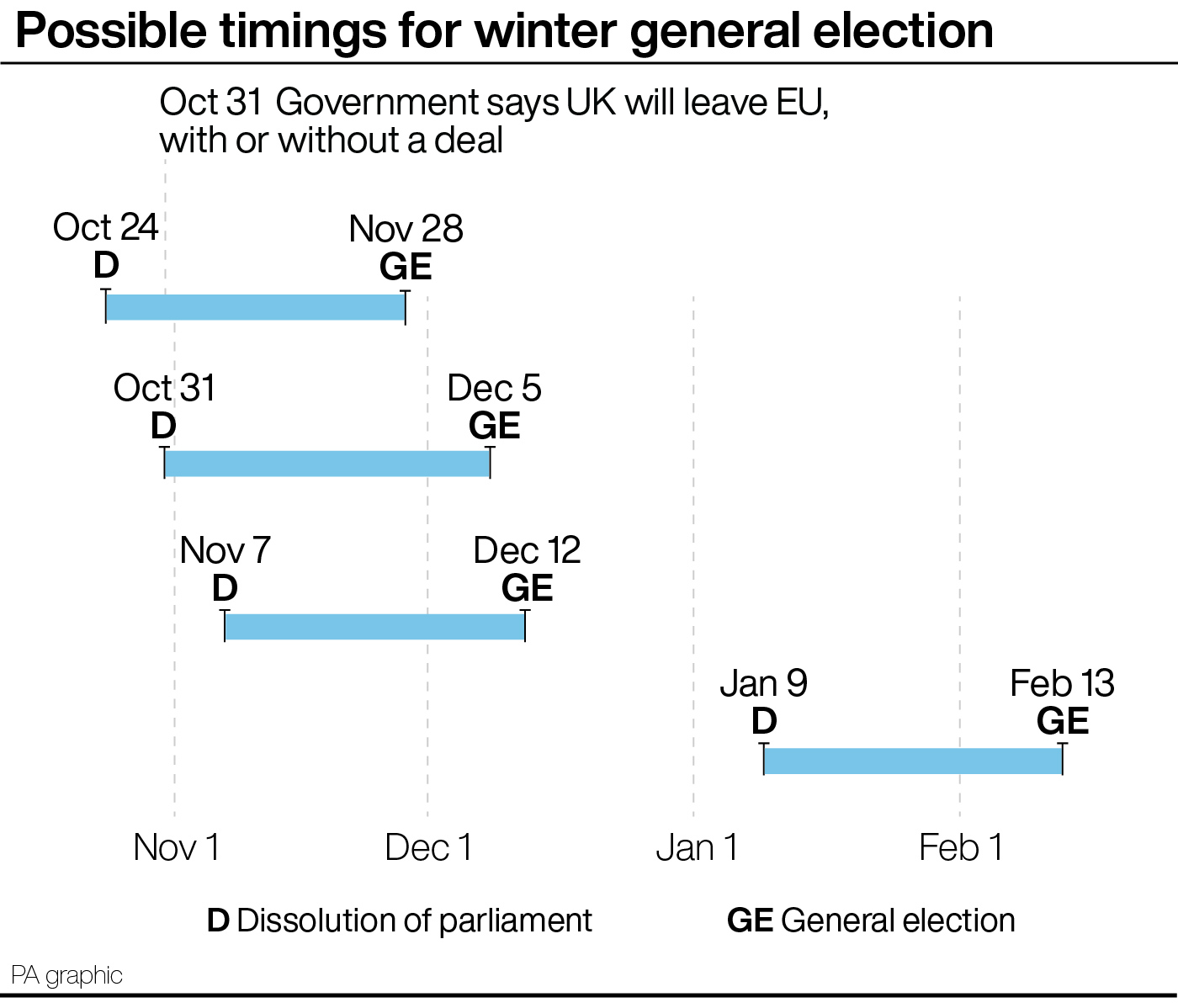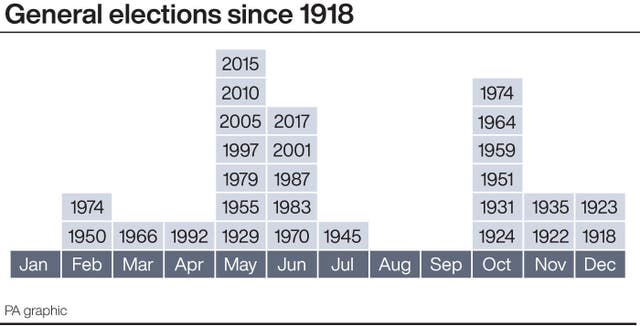
By law, Parliament has to be dissolved 25 working days before a general election.
This means that time is running short for an election to take place comfortably before Christmas.
If MPs voted to trigger an election on Wednesday of this week, dissolution could follow immediately on Thursday, meaning a general election would take place on Thursday November 28.
READ MORE: New poll suggests shift in support away from Scottish independence
But this timescale is very tight and would probably require the Government to put down a motion today calling for a vote tomorrow.
 (PA graphic)
(PA graphic)
Another scenario would see MPs holding the trigger-vote at some point in the next few days, with dissolution pencilled in for October 31 and polling day on Thursday December 5.
The latest date for a general election before Christmas is probably Thursday December 12.
For this to happen, Parliament would need to be dissolved on November 7.
Any later and polling day would end up falling in the week before Christmas.
Alternatively, MPs may decide to sit tight and wait until the festive season is out of the way before triggering an election, with dissolution potentially on January 9 2020 followed by polling day on February 13.
READ MORE: Tory MPs: Johnson could accept 'short delay' to Brexit as he threatens to pull Bill to avoid long one
These scenarios assume that polling day would, as is tradition, fall on a Thursday – but there is nothing in law to stop it being on another day.
For example, if the trigger-vote did not take place until Monday October 28, dissolution could potentially follow on October 29 and polling day would be Tuesday December 3.
It is likely MPs would still want to pick a date that avoided clashing with the run-up to Christmas, however.
The last time a general election took place in December was 1923.
 (PA graphic)
(PA graphic)



Why are you making commenting on The Herald only available to subscribers?
It should have been a safe space for informed debate, somewhere for readers to discuss issues around the biggest stories of the day, but all too often the below the line comments on most websites have become bogged down by off-topic discussions and abuse.
heraldscotland.com is tackling this problem by allowing only subscribers to comment.
We are doing this to improve the experience for our loyal readers and we believe it will reduce the ability of trolls and troublemakers, who occasionally find their way onto our site, to abuse our journalists and readers. We also hope it will help the comments section fulfil its promise as a part of Scotland's conversation with itself.
We are lucky at The Herald. We are read by an informed, educated readership who can add their knowledge and insights to our stories.
That is invaluable.
We are making the subscriber-only change to support our valued readers, who tell us they don't want the site cluttered up with irrelevant comments, untruths and abuse.
In the past, the journalist’s job was to collect and distribute information to the audience. Technology means that readers can shape a discussion. We look forward to hearing from you on heraldscotland.com
Comments & Moderation
Readers’ comments: You are personally liable for the content of any comments you upload to this website, so please act responsibly. We do not pre-moderate or monitor readers’ comments appearing on our websites, but we do post-moderate in response to complaints we receive or otherwise when a potential problem comes to our attention. You can make a complaint by using the ‘report this post’ link . We may then apply our discretion under the user terms to amend or delete comments.
Post moderation is undertaken full-time 9am-6pm on weekdays, and on a part-time basis outwith those hours.
Read the rules here